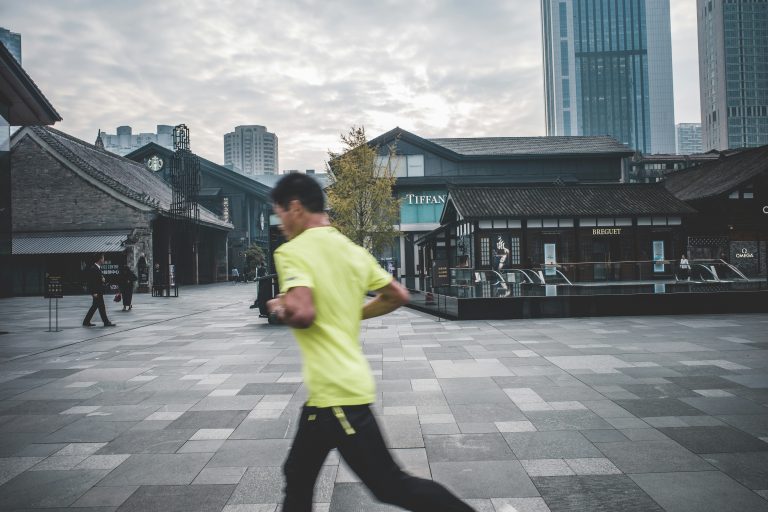Ryan moved to the United States from Guangzhou, China, at the age of twelve. Ryan received his Master of Divinity at Gordon-Conwell Theological Seminary and is currently serving as an Assistant Pastor at New City Presbyterian Church in his US hometown of Cincinnati, OH. He also serves as the China Partnership Translation Manager.
A little less than two months ago, many of my Chinese friends in America were searching through grocery, pharmacy, and home improvement stores in their cities to purchase masks. Some were buying masks for their personal use, but most were sending the masks back to their friends and family in China. My family contributed some money to a charity organization that promised to deliver masks to Wuhan, as did thousands of other Chinese Americans. Along with these efforts, the president of China Partnership mobilized churches in America to purchase masks to send back to China.
Now two months later, as life in China is gradually returning to normal, we are seeing a very different phenomenon from Chinese and Chinese Americans:
· A house church in Xiamen is shipping 40,000 masks to the U.S. Half of these will go to New York City.
· A church in Shandong generously donated 20,000 masks to churches and hospital workers in Pennsylvania and Maryland.
· The Cantonese congregation of a church in San Francisco donated 1,500 masks to local hospitals.
· A Chinese student in Boston is organizing volunteers to purchase and deliver 10,000 masks and other protective equipment to local hospitals.
· A group of parents of Chinese Tufts students are donating 31,000 N95 masks to the Tufts Medical Center.
· The New England Patriots’ team plane is flying more than 1.2 million N95 masks from Shenzhen, China, to the U.S.
· A Chinese church in Indianapolis is collecting masks and has dedicated $5,000 to purchase protective equipment for hospitals.
In my own house, my aunts in China are scrambling to find masks to send to us, but they are having trouble doing so because many people in China are also buying masks to send to their friends and family overseas. This is certainly a surprising turn of events in just two short months, and it highlights several realities about the world in which we live.
Never miss a story
There is an eagerness and even anxiety within the Chinese community to prove to their American neighbors that they are friendly, safe, and trustworthy. Due to the disease’s origin in China and the use of non-medical language to describe the virus, Asians and Asian Americans are facing a rise of hate crime and discrimination in this country. There are frequent report of racial slurs, spitting, harassment, and even violence against Asians and Asian Americans in different cities. Many of them are taking it upon themselves to change this inaccurate association between COVID-19 and Asians.
It is not only Chinese Americans who feel this burden. As one of my mainland Chinese friends recently commented, “As a Chinese, I feel ashamed to see how the Chinese government concealed the facts at the beginning and then lied about the real numbers later on, which then led to a global pandemic. As a member of this ‘banality of evil,’ I feel greatly indebted.”
Yet while the virus originated in China, it respects no ethnic distinctions, national border, or social economic status. It is one of the most equalizing factors our modern world is facing. On a personal level, many Asian Americans feel the responsibility to demonstrate that Asians have also suffered greatly under this pandemic, and more importantly, they are eager to make sacrifices for the good of their communities. This does not mean that their generosity and sacrifices are ultimately self-serving – Chinese citizens were the first to feel the brunt of the virus, and they know firsthand the toll it exacts on society. Likewise, Asian Americans face not only the specter of disease, but also that of discrimination. This mobilization merely emphasizes one of the sad realities that they have to confront in this crisis.
The assistance from China and the Chinese community highlights the common bond of humanity broadly. When people in China suffered, many Americans immediately acted to provide for their medical and financial needs. Now that China is catching a reprieve from this virus, Chinese are immediately sharing their resources and expertise with other nations. We have already seen COVID-19 changing how the world does science together. On the macro level, despite the divisive rhetoric voiced by many political leaders, scientists are creating a global collaboration unlike any in history. On a micro level, neighbors are eager to lend a helping hand to the vulnerable and the sick as we all face this threat together as a society. Many Chinese and Chinese Americans simply see donating masks to hospitals as the right thing to do for the good of their cities.
More specifically, these events highlight the mutual love among brothers and sisters in Christ. While we do share a common bond of humanity, the bonds go deeper in God’s family. We are all citizens of the Kingdom, members of one body in Christ. As the Apostle Paul writes, “If one member suffers, all suffer together; if one member is honored, all rejoice together” (1 Cor. 12:26).
Our Chinese brothers’ and sisters’ service to us goes deeper than diffusing criticism or promoting social good; they are taking care of members in their own family. As one house church pastor who is shipping thousands of masks to the United States shared with me, “Our city first received the gospel in 1842 as a result of the labor from American Presbyterian missionaries…The churches in America sent over a high number of people and resources to help this city over the last one and half centuries. After the opening in the 1980s, many American Christians brought us Bibles. Our own church has received over 30 shipments of Bibles…We have received too much, and [until now] we never had the opportunity to return the favor.”
Last, assistance from the Chinese community highlights the reciprocal relationship between our two countries, and between the churches in our two countries. One unfortunate reason why the United States is so under-prepared for the COVID-19 pandemic is because we failed to recognize the global reality of our world. Many people in the West (myself included) mistakenly believed that the virus was only a Chinese problem, or we blamed the seriousness of this illness on China’s high population density and poor healthcare system. Much to our chagrin, we soon learned that this is not just a Chinese problem, it is a global problem. The virus not only debilitated the healthcare system in Hubei, it is debilitating healthcare systems around the world. In turn, China – along with many Asian nations who have successfully contained the virus – has much expertise and many resources to share with us.
We must learn to see China no longer just as a recipient of our assistance, but as a partner on the world stage. The same goes for the Chinese church. Although Protestantism was brought to China by Western missionaries in the 19th Century, the Chinese church has grown and matured beyond any of these missionaries’ wildest imagination, despite the challenges of persecution, materialism, and secularization. Chinese churches have expertise and experiences from which churches in the West can greatly benefit.
Very few issues we face in the church remain local problems. While we still have to do the hard work of contextualization, we must recognize that many of the challenges that the Chinese church faces are the same ones we face, and their wisdom and experience in meeting these problems can greatly help us meet our own. China Partnership’s goal is to promote this mutual respect and partnership. I pray that the churches in the West will have the humility to learn from our brothers and sisters in China in all times, but for certain, at such a time as this.

More COVID-19 Resources
We’ve put together a special page devoted to ways we can learn from, love, and pray alongside our Chinese brothers and sisters during the coronavirus pandemic.
































